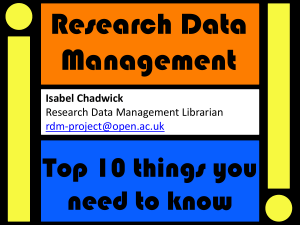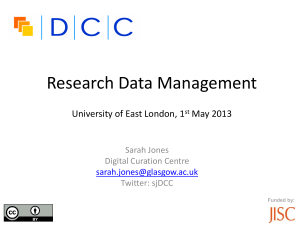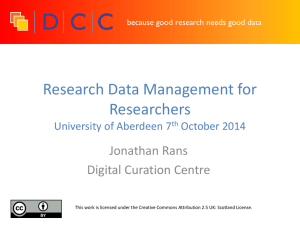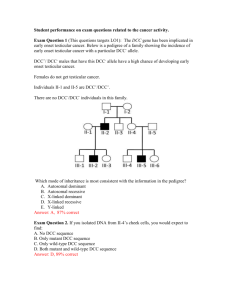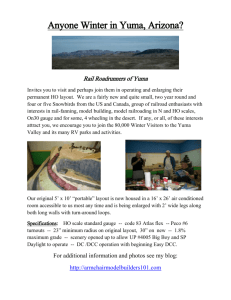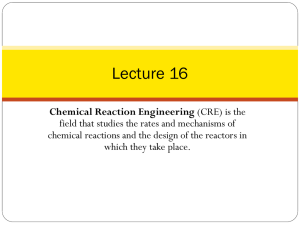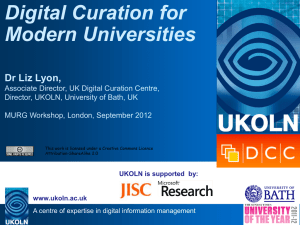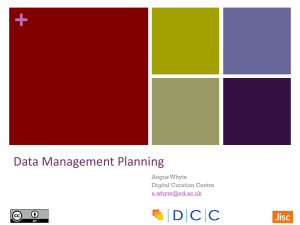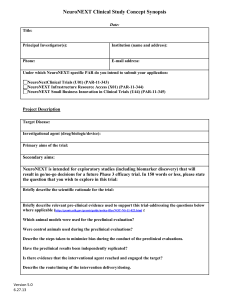October - District Councils Collaborative
advertisement
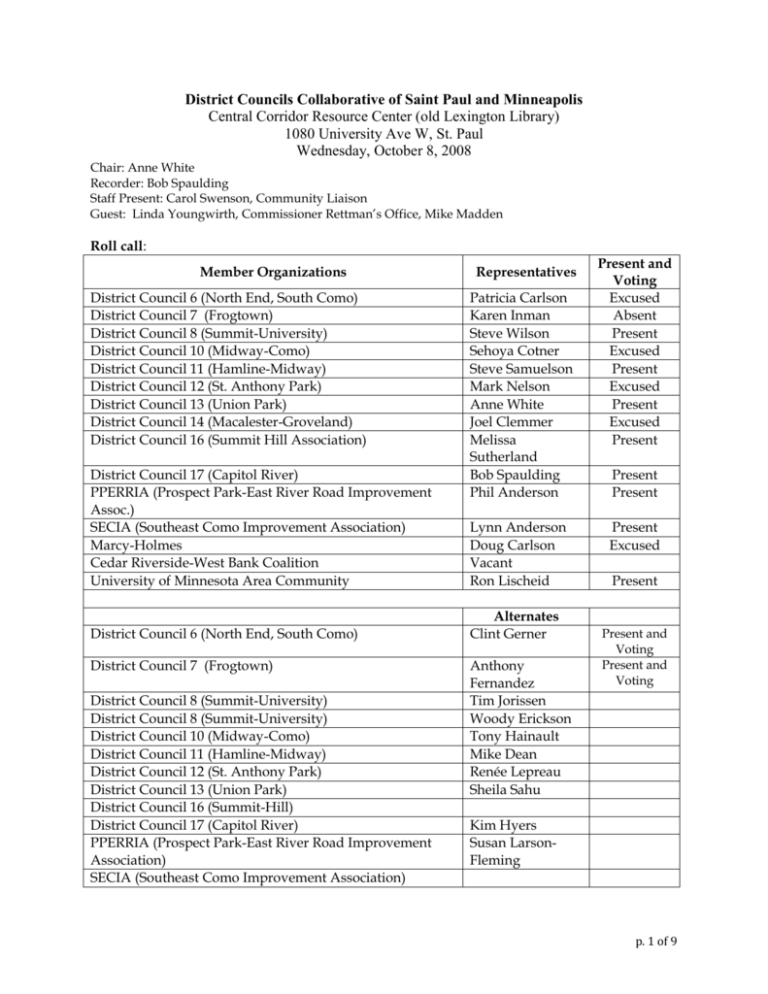
District Councils Collaborative of Saint Paul and Minneapolis Central Corridor Resource Center (old Lexington Library) 1080 University Ave W, St. Paul Wednesday, October 8, 2008 Chair: Anne White Recorder: Bob Spaulding Staff Present: Carol Swenson, Community Liaison Guest: Linda Youngwirth, Commissioner Rettman’s Office, Mike Madden Roll call: Member Organizations District Council 6 (North End, South Como) District Council 7 (Frogtown) District Council 8 (Summit-University) District Council 10 (Midway-Como) District Council 11 (Hamline-Midway) District Council 12 (St. Anthony Park) District Council 13 (Union Park) District Council 14 (Macalester-Groveland) District Council 16 (Summit Hill Association) District Council 17 (Capitol River) PPERRIA (Prospect Park-East River Road Improvement Assoc.) SECIA (Southeast Como Improvement Association) Marcy-Holmes Cedar Riverside-West Bank Coalition University of Minnesota Area Community District Council 6 (North End, South Como) District Council 7 (Frogtown) District Council 8 (Summit-University) District Council 8 (Summit-University) District Council 10 (Midway-Como) District Council 11 (Hamline-Midway) District Council 12 (St. Anthony Park) District Council 13 (Union Park) District Council 16 (Summit-Hill) District Council 17 (Capitol River) PPERRIA (Prospect Park-East River Road Improvement Association) SECIA (Southeast Como Improvement Association) Representatives Patricia Carlson Karen Inman Steve Wilson Sehoya Cotner Steve Samuelson Mark Nelson Anne White Joel Clemmer Melissa Sutherland Bob Spaulding Phil Anderson Lynn Anderson Doug Carlson Vacant Ron Lischeid Alternates Clint Gerner Anthony Fernandez Tim Jorissen Woody Erickson Tony Hainault Mike Dean Renée Lepreau Sheila Sahu Present and Voting Excused Absent Present Excused Present Excused Present Excused Present Present Present Present Excused Present Present and Voting Present and Voting Kim Hyers Susan LarsonFleming p. 1 of 9 Cedar Riverside (West Bank Community Coalition) Marcy-Holmes University District p. 2 of 9 PRELIMINARY BUSINESS 1. Welcome to new members and visitors. Anne welcomed Clint Gerner, North End – South Como, who introduced himself. Linda Windsor from University UNITED, Mike Madden from District 13, and Linda Jungwirth from Commissioner Janice Rettman’s office introduced themselves. 2. Roll Call of Voting Representatives & Roster of Current Members. Carol called the roll. A quorum was present. 3. Opportunity for Visitors to Speak. Mike Madden introduced himself. He noted that recent planning calls for more emphasis on alternative transportation, and so we should focus on bringing more people to light rail. He suggested that we bring more people through increased north-south bus service and by creating better bicycle and pedestrian connections. He believes that park and rides are contrary to good urban transit design. Mike also introduced cross-section renderings of what University Avenue would look like with just two lanes in each direction; this would help preserve parking on the Avenue. He said that engineers projected 9 to 13 failing intersections under that scenario, but said that experience led him to believe that prediction was probably a bit of “gloom and doom” coming from traffic engineers. 4. Approve Agenda. Phil moved to adopt an amended agenda, by moving number 10 up to after #6 on the agenda, to accommodate University UNITED’s Linda Winsor, who is here to talk about the DCC relationship to University UNITED. 5. Approve Minutes of September Meeting. Carol noted three changes to the draft minutes that were sent out by e-mail. These reflect errors that were corrected in the version distributed today: the date at the top of the minutes (corrected from August to September), Anthony Fernandez (from absent to present and voting), and #6 (changed to refer to the August financials instead of the July financials). Steve moved approval with the aforementioned changes. Motion seconded and approved. 6. Receive September Financial Report. Carol said that the first column shows where our 2008 financials were through the beginning of August - $64,000 in income and $46,161 in expenses. In September, the income stayed the same, and expenses rose to $51,434. Carol noted that we expect to receive the $50,000 pledge from the St. Paul Foundation in October. We also hope to get word soon, pending University UNITED acceptance, of whether our $25,000 applications for funding from the Bremer and Minneapolis foundations will be approved. 7. University UNITED Relationship. Anne reported that the DCC and University UNITED have been in discussions for several months regarding funding. It really came to a head when several foundations noted they will only accept one request from each organization (the DCC is under University UNITED’s umbrella). We have been increasingly discussing this since that time, both Anne, our Executive Committee, and a bit at the full Governing Council. Last February or March, the DCC agreed that our work would definitely be needed until at least midway through LRT construction in 2012. University UNITED suggested we should wind down in December 2009. The DCC Executive Committee came to the conclusion that we would need to do one of two things: p. 3 of 9 Agree to continue with University UNITED as the DCC’s fiscal sponsor, with support for DCC funding requests through 2012, when the DCC would sunset, or Agree that UU and the DCC should begin the process of separating, with the transition to be completed by December 2009 at the latest. If the board of UU chooses this option, the DCC also requests that UU support our pending Bremer and Minneapolis Foundation grant proposals, which were submitted in May 2008, with UU approval, and have proceeded through site visits in August and September. The DCC will need these grants to allow for a smooth transition, while continuing our research and advocacy at the current level. Linda Winsor introduced herself. She reported that the University UNITED Executive Committee met on Monday and discussed their future relationship with the District Councils Collaborative. She said she did not believe that the DCC’s work would end with the merger proposed by University UNITED, but it would continue within University UNITED. In laying out the history of DCC/UU funding discussions, Linda said that earlier, Brian McMahon recommended that University UNITED and the DCC seek grants together. Steve Wilson and Anne White noted that has never been what Brian has suggested to the DCC; in fact he opposed that suggestion by Frank Schweigert. Linda said she would check on that detail. Shortly after the first meeting, the DCC invited the Collaborative to move into the UNITED office, and the invitation was turned down. Linda said that University UNITED has cut office staffing from a total of 2.5 FTE down to 1 FTE over the last year. Meanwhile, she said that UNITED felt the DCC has increased its spending, with plans to hire office assistants for Carol, and consultants. (It was pointed out that no assistant was ever hired). In May, UNITED learned that the St. Paul and Bremer foundations had new policies that would not allow multiple grants to the same organization. (Anne noted that Bremer actually informed us of that policy in August, during the site visit.) Anne also noted that regardless, Brian McMahon gave the go-ahead to apply to the St. Paul, Bremer and Minneapolis foundations in February of this year. Linda stated that a foundation officer had suggested the DCC would like to be around for a period of sixty years. DCC members disagreed, and laughed at the concept that anyone would submit such a silly idea. Anne noted that we have agreed that the work of the DCC will need to continue through 2012, halfway through construction of the Central Corridor LRT. We view 2012 as a reasonable date for the DCC to end. Linda reported that University UNITED felt it has done everything it can to tighten its belt, but has not seen that the DCC has done the same. In June, UNITED asked the DCC to pitch in with $5,000 for U-Plan to create 3-D visuals of LRT station areas, but the DCC refused. (Anne noted that this request was made in the form of a “what if…” e-mail from Brian to her, and she replied saying she thought it was too late for the visuals to be useful for community discussions, given pending deadlines for municipal consent. There was no formal request from UU, so she did not bring the proposal to the Executive Committee for consideration.) p. 4 of 9 A budget discussion followed to try to reconcile differences between UU and DCC financial statements. The UU version of the DCC budget shows a $65,993 balance after September 30th, and projects that the DCC could continue to exist for an additional 11 ½ months with that money. The DCC budget shows a $56,865 balance after September 30th, which would cover 10 months of expenses at the current level, but would not allow for any additional consulting contracts. Carol noted that most of the difference between the two budgets reflects receivables not included by UU -- $5000 due for consulting work on traffic impacts of the Washington Avenue pedestrian/transit mall, $1200 approved for Carol to attend Railvolution conference, and $1500 for the 3% fiscal sponsorship fee due to UU on receipt of the $50,000 grant from the St. Paul Foundation. The University UNITED Executive Committee is advancing the following resolution to their board: WHEREAS, foundations have adopted policies limiting funding to one program per organization, and WHEREAS, the current downturn in the economy may result in less available funds for non-profit organizations, NOW THEREFORE BE IT RESOLVED that University UNITED will cease to support new funding applications for the District Councils Collaborative, as a separate program beyond their current funding that will end in September, 2009. When asked to clarify UU’s alternative proposal that the DCC merge with UU by the end of 2009, Linda said she thought the intention was not that the DCC would cease to exist, but the UU board would direct the work of the DCC, with two seats on the UU board reserved for DCC representatives. However, she thought there might be a willingness on the part of UU to allow the DCC Governing Council to continue as an advisory committee to the UU Board. Anne noted that University UNITED is the fiscal agent for the DCC, and our money comes through University UNITED. However, the DCC was set up by securing the approval of the district councils, with the Governing Council representing those councils that opted to become a part of the organization, and a staff member was hired, answering to the Governing Council, Executive Committee, and DCC Chair. Melissa asked whether UNITED represents the same geographic area as UU. Linda answered that the area is largely the same, but the DCC also includes downtown St. Paul as well as the full U of M area in Minneapolis. (Anne pointed out that the DCC represents 15 neighborhood organizations; six of those are also on the board of UU. Melissa asked what “cease to support” means in the draft UNITED motion. Linda said the recommendation would be to fold the DCC’s operations into University UNITED, close the DCC office and move the office to UNITED’s space, and either dissolve the DCC Governing Council or reconstitute it as an advisory committee to University UNITED. Clinton asked how the board of UNITED is chosen. Linda said community representatives are chosen by the boards of the district councils. It was pointed out that all grants the DCC has applied for have been approved by University UNITED as the DCC’s fiscal sponsor. Steve said that he thinks one of the concerns UNITED has is that the DCC too closely follows the community’s interests in choosing issues to work on. He said he believes that UNITED wants the DCC to cease p. 5 of 9 to exist. Lynn asked where UU proposed merging physical office space – at UU or here at the DCC office, where there is plenty of space available. There is a concern that Carol’s time would be paid by DCC funding, but used for other UU projects. Phil said that during his time at UNITED, there was one focus on Minneapolis, and it was dropped. During his time on the DCC, there have been a number of studies – one excellent one on the extra stations, and others in Minneapolis, such as the Washington Avenue closure mitigation study. Ron moved adoption of the following as a motion: Whereas University UNITED (UU) and the District Councils Collaborative (DCC) are faced with increasing challenges in securing funding, including: Limited foundation resources, with many organizations competing for funding to work on Central Corridor, The current economic downturn which may well reduce funding options for University UNITED, and Foundation policies that limit funding applications to one per organization, and put the District Councils Collaborative in direct internal competition with U-PLAN, University UNITED’s community design studio, and Whereas, the Executive Committees of UU and the DCC have, over the last several months, actively explored alternative organizational structures and working relationships to meet these challenges, and Whereas, the DCC foresees the need to continue its work on Central Corridor for another four years – to 2012, halfway through construction, and does not believe the DCC can responsibly fulfill its mission under the UU proposal that the DCC should wind down and be absorbed by UU by December 2009 as a condition of continuing as the DCC’s fiscal sponsor, Whereas, the University UNITED (UU) Executive Committee intends to recommend to the Board of University UNITED that UU should terminate its fiscal sponsorship agreement with the DCC and cease to support new funding applications for the DCC, Therefore, be it resolved that the DCC requests that the board of University UNITED adopt one of the following two options at its October meeting: 1. Agree to continue as the DCC’s fiscal sponsor, with support for DCC funding requests through 2012, when the DCC would sunset, along with assurances that governance of designated funds, policy control and staff supervision remain with the DCC Governing Council. If the board of UU chooses this option, the DCC also recommends that UU and the DCC explore the possibility of developing joint grant proposals to expand funding opportunities for UU, the DCC and other UU projects. (added as approved by GC) 2. Agree that UU and the DCC should begin the process of separating, with the transition to be completed by December 2009 at the latest. If the board of UU chooses this option, the DCC also requests that UU support our pending Bremer and Minneapolis Foundation grant proposals, which were submitted in May 2008, with UU approval, and have proceeded through site visits in August and September. The DCC will need these grants p. 6 of 9 to allow for a smooth transition, while continuing our research and advocacy at the current level. It’s also important to note that the DCC’s St Paul Foundation request cited the Bremer and Minneapolis funding requests as evidence that we are not relying solely on the St Paul Foundation to support the work of the DCC in the future. (Clarification added by DCC Chair) Resolution Context: The DCC appreciates the seminal role that UU played in the founding of the DCC and understands that any decision by the UU board to terminate its fiscal sponsorship of the DCC is based on financial considerations. We believe that University UNITED and the District Councils Collaborative both have important roles to play in building a successful Central Corridor LRT that serves the needs of the neighborhoods along the line. We look forward to working alongside UU to ensure that neighborhood voices are heard and heeded as the project progresses through Final Design and construction. Melissa said she would suggest amending #1 to indicate the desire that funds and control for the DCC would remain wholly with the DCC; those amendments are reflected above in grey. Steve said that he thought there was support for combined grants for the two entities from the foundation community, but no support from UNITED for that approach. Going forward, Steve didn’t think UNITED would be very successful obtaining grants. Ron said he thought it would be good to have the two options laid out clearly for the UNITED board – we need to get at least enough funds to get through the end of 2009, and the proposed resolution lays out those choices. Phil suggested a friendly amendment that would say we would be okay with getting either the $25,000 from the Bremer Foundation or the $25,000 Minneapolis Foundation, but the rest of the Governing Council thought that was unwise, given the uncertainty of receiving either of those grants. Phil withdrew his suggested amendment. Lynn suggested that Carol amend language in the resolution to reword #1 to suggest we would be willing to work with UNITED on joint grant proposals. The Governing Council agreed to this suggestion, which is reflected above in grey. Ron’s motion to approve the above, as amended by Melissa and Lynn, was seconded and passed unanimously. REPORTS 7, Update on the Central Corridor Project The Washington Avenue Alignment Committee met with project staff about the state of the Washington Avenue Bridge and had what seemed to be a good meeting. We will be setting up additional meetings to explore how the interests of project partners align on mitigation, and to develop a bridge fact sheet. 8. Update on DCC Priority Agenda The Stations Committee participated in two meetings with the Transportation Equity/Stops for Us coalition. One with Rep. Alice Hausman talked about how to secure funding for additional stations. Another was convened by representatives of Congresswoman McCollum to talk about station funding, along with contracting opportunities and community benefits. That group included representatives from Mayor p. 7 of 9 Coleman’s office, the City Council and the Ramsey County Board of Commissioners. The group has agreed to meet again on October 24th. Also ISAIAH is having a big meeting on October 12th from 3-5:30 pm to talk about transportation equity, with particular focus on the Central Corridor. The Access group has continued to meet. Patty Carlson continues to take the lead in talking about what will happen in District 6. On November 13th at 6:30, there will be a town hall meeting either at Arlington HS or Arlington Rec Center, with transit agencies and others, to talk about what it will take for local businesses and citizens to expand bus service to provide a vital corridor to access light rail. Marcy Holmes is having a transportation summit on October 15th, with Jack Brose presenting our research on transportation impacts. The Access group is also taking on the issue of parking. At the next meeting, Barb Thoman from Transit for Livable Communities will talk about how to approach parking, park and rides, and the like. DISCUSSION AND ACTION 9. DCC Priority Agenda (October 2008 – March 2009) Anne reviewed our current priority agenda. One item is new, which is #4, Neighborhood Visioning for LRT (formerly neighborhood mitigation). The idea is to go back and have people think about why they wanted this line, and have people identify clearly from each neighborhood what issues remain unresolved. In talking with Carol about this, it is still undefined about whether that means going back to the boards of the neighborhood organizations, or reaching out to the broader community. In terms of website development, Anne would like to take that on in earnest, and is in contact with a consultant; she hopes both Melissa and Joel will join her. We will also continue to work on funding. And the Structural Transitions Committee will continue looking at two options -- becoming a 501(c)(3) or looking for another fiscal sponsor. We want to be prepared to move very quickly, to be responsive to UNITED’s board decisions. Then the next step in the process will be to go back to each of our district councils or neighborhood organizations, and seek agreement to continue as members of the new DCC entity. Lynn suggested a new fiscal sponsor should have a broad geographic base, and noted that SECIA has had an environmental coordinator in conjunction with funding of two other neighborhood organizations, but because it was sponsored with one council, it has become associated with that council primarily. Melissa moved adoption of the Research and Action Priorities for September 2008 to March 2009. Carol read an email from Mark Nelson. He thought it was missing an item: to continue to track LRT impacts along University Avenue itself. We might think about University Avenue proper, both sides of the street, and a half block further. The EIS includes loss of parking as another issue, and this should continue to be tracked. The Council generally felt these items fit within #1 and #4 in the priorities. Ron suggest another topic we should be tracking -- the greening of the project, including stormwater management, air pollution, and water pollution. Perhaps there are others working on this; if so we should know who are the watchdogs, and who is advocating for a greener corridor. p. 8 of 9 Melissa’s motion to adopt the Research and Action Priorities for September 2008 to March 2009 was seconded and adopted. CLOSING BUSINESS 11. Schedule Next Governing Council Meeting – Wednesday, November 12th, 2008 The next governing council meeting was set. 12. Evaluation of the Meeting & Suggestions for Future Meetings The meeting was evaluated. 13. Adjournment The meeting was adjourned. p. 9 of 9
